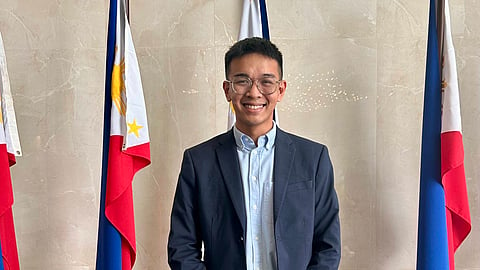
- NEWS
- the EDIT
- COMMENTARY
- BUSINESS
- LIFE
- SHOW
- ACTION
- GLOBAL GOALS
- SNAPS
- DYARYO TIRADA
- MORE

Social media platforms, which were originally geared toward serving as a platform where people from across the globe may engage with one another, continue to gain prominence.
Because of this, it is no longer surprising that people would often use this platform not just to connect and converse, but also to express their sentiments on some of the most pressing issues the international community faces today.
In Southeast Asia alone, more people now prefer to source news and other information from these platforms instead of traditional media.
This is with the conviction that they are more free from bias and government controls.
As such, social media can be said to be yet another avenue in the 21st century of how diplomacy works. In the case of the Philippines, for instance, various government agencies and foreign missions are already utilizing these platforms to spread information.
Declarations, statements and milestones are now being shared through online avenues.
With all these in mind, one can easily observe the fluidity of Diplomacy in the modern times.
From closed-door meetings — which diplomats still practice today when dealing with perennial matters — social media has now morphed into an avenue where these engagements are shared. Due to the ramifications of the pandemic, people-to-people exchanges had to pivot, and even our way of dealing with one another to maintain global peace and order had to be retooled. Tracks 6 and 9 of the so-called “multitrack diplomacy” — centering on Advocacy-based activism and media peacemaking, respectively — are now being carried out in these online forums.
Modern diplomacy, that being said, cannot just be best described anymore to be open and inclusive.
Instead, the practice, in a way, is also now digitalized and tech-driven. For as long as these platforms exist, this practice is here to stay.
Social media, however, continues to be confronted with perilous elements. With the furtherance of nationalism and identity-based approach to governance presently, it is now being weaponized as a tool to disinform.
Instead of contributing to peace, it fuels tensions and hatred.
With this dichotomy in mind, it is imperative that the international community work together to safeguard these technologies.
It is about time we thought of viable strategies on how social media will continue to be used as a force for good and peace, and not to exacerbate the challenging circumstances we face today.
Addressing the digital divide is also among the primary topics that should be delved into to make digital diplomacy more inclusive and accessible, especially to the Global South.
After all, these platforms were originally designed to serve as a bridge between nations. It is now our moral duty to ensure that no one will be left behind in the process.
About the author
Josue Raphael J. Cortez is a full-time instructor at the De La Salle-College of Benilde School of Diplomacy and Governance. Aside from teaching, he also serves as the Practicum Coordinator of its Diplomacy and International Affairs Program.
